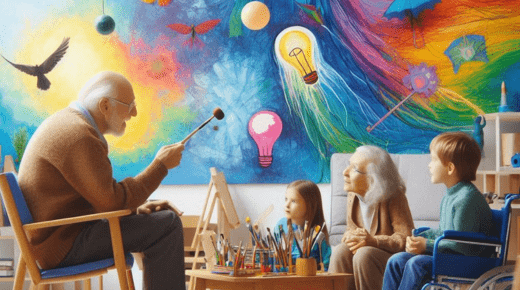Adopting a Healthful and Energetic Way of Life in a Senior Living Facility

- How structured activities and social interactions boost overall well-being.
- Consider integrating a well-rounded diet and consistent physical activity into your daily schedule.
- Resources for finding additional information on maintaining an active lifestyle.
Why Physical Wellness Matters
Retirement communities provide a unique opportunity for seniors to focus on their physical health. Physical activities like walking, swimming, or yoga can significantly improve mobility, balance, and overall strength. For instance, daily morning walking can lead to better cardiovascular health, reduced joint pain, and a noticeable boost in energy levels. These activities not only prevent physical decline but also improve quality of life. Remaining active is essential for preserving a healthy lifestyle as we grow older. Communities that offer a variety of wellness activities are an excellent choice for retirees looking to stay active. For additional information, you may visit this website.
Mental Health: Equally Important
Maintaining mental health is crucial for seniors. Activities such as puzzles, reading, and group discussions stimulate cognitive functions, helping to keep the mind sharp and engaged. For example, engaging in brain games like crossword puzzles and Sudoku can significantly improve mental agility and delay cognitive decline. Retirement communities often offer various programs that promote mental engagement. Examples of such activities involve book clubs, educational workshops, and memory care programs that aim to activate the brain. Mental wellness activities prevent cognitive decline, making them essential to any retirement lifestyle. Regular mental stimulation can also reduce the risk of depression and anxiety, contributing to overall happiness and well-being.
The Role of Structured Activities
Structured activities in retirement communities improve physical and mental health and foster social connections. Activities like art classes, gardening clubs, and dance nights encourage residents to engage in meaningful pastimes while building lasting relationships. These activities provide a sense of purpose and accomplishment, which is crucial for emotional well-being. For instance, participating in a community garden initiative allows individuals to experience physical activity and the joy of witnessing the growth of something they have nurtured. Structured social activities also help prevent loneliness, which can be a significant issue for seniors. These interactions make the community feel like a family, enhancing the overall living experience.
Healthy Eating in Retirement
Nutrition plays a pivotal role in maintaining health during retirement. Eating nutrient-rich foods guarantees you get the necessary vitamins and minerals for the best health outcomes. Retirement communities often provide options for healthy eating, including dietitian-approved meal plans and cooking classes. Attending community cooking classes can be a fun and educational experience, where residents learn to prepare delicious and nutritious meals together, fostering a sense of camaraderie and mutual support.
The Benefits of Regular Exercise
Habitual exercise is more than just about being in good physical shape; it enhances mood and overall well-being. Activities like tai chi, cycling, or regular walks can significantly improve heart health, help with weight control, and lower the chances of developing chronic illnesses. Exercising also prompts the body to release endorphins. For instance, engaging in a weekly yoga class can improve flexibility, balance, and mental clarity, making exercise enjoyable and sustainable. Retirement communities frequently provide a range of exercise programs designed for diverse fitness levels, allowing every resident to engage and enjoy the advantages of a healthy lifestyle.
Social Interactions and Community Life
Retirement communities offer an environment where residents can easily socialize and form lasting friendships. Social interactions are essential for preventing loneliness and depression and enriching residents’ lives with shared experiences and emotional support. Events like community dinners, movie nights, and game sessions create opportunities for engagement and bonding. These social opportunities are crucial for maintaining a fulfilling and emotionally rich life. For example, attending a monthly community potluck allows residents to share their favorite dishes while enjoying lively conversations with neighbors. Such gatherings foster a sense of belonging and community spirit, making retirement enjoyable and meaningful.
Seeking Further Resources
Many resources are available online for comprehensive information on maintaining an active and healthy lifestyle in a retirement community. Websites specializing in senior health provide valuable tips and expert advice. Consider exploring reputable sources and community forums to stay informed and motivated. Engaging with online communities can also offer support and inspiration, making staying committed to a healthy lifestyle easier.
Conclusion
Embracing a healthy and active lifestyle in a retirement community has numerous advantages. Seniors can enjoy a fulfilling and vibrant retirement by prioritizing physical wellness, mental engagement, healthy eating, and social interactions. Leveraging available resources and participating in community activities can make this phase of life both enjoyable and rewarding. Living in a supportive community that offers diverse activities and programs ensures that residents have ample opportunities to thrive and maintain a high quality of life.






